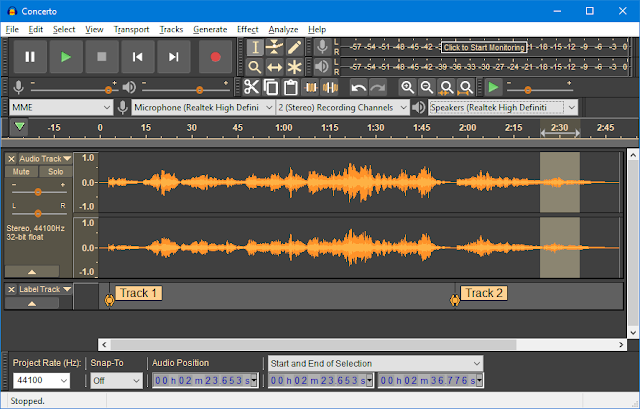
Audacity is a free, open-source digital audio editor and recording application which can be used on multiple platforms including Windows, macOS, and Linux.
Audacity is widely used by podcasters, musicians, and other content creators to edit and enhance audio.
One of the key features of Audacity is its ability to record live audio, including from microphones and other input devices.
Once audio is recorded, Audacity provides a range of tools for editing, such as trimming, splitting, and merging tracks.
How to Install Audacity On Linux Ubuntu, Mint and Debian?
- Open the Terminal application on your Ubuntu Linux system.
- Type the following command to download the latest stable version of Audacity for Ubuntu:
$ sudo add-apt-repository ppa:ubuntuhandbook1/audacity
$ sudo apt update
- Once the download is complete, run the following Y/n. Answer Y
Uninstall Audacity from Ubuntu
$ sudo apt remove –autoremove audacity audacity-data
Additionally, users can add effects to their audio, such as EQ, compression, and reverb, or adjust the volume or speed.
Audacity also allows users to edit and clean up audio, such as removing background noise or pops and clicks.
Audacity has a simple and user-friendly interface. The main screen displays a waveform of the audio file being edited, and users can zoom in and out of the waveform to adjust the level of detail shown.
Audacity also has a range of keyboard shortcuts that make it easy to perform common tasks quickly.
One of the best things about Audacity is that it is free and open-source software, which means that it can be downloaded and used without any cost. Moreover, because it is an open-source project, Audacity’s source code is freely available, meaning that users and developers can modify, improve, and redistribute the software as they wish.
This ensures that Audacity is an ever-evolving and improving application, with new features and updates being added regularly.

